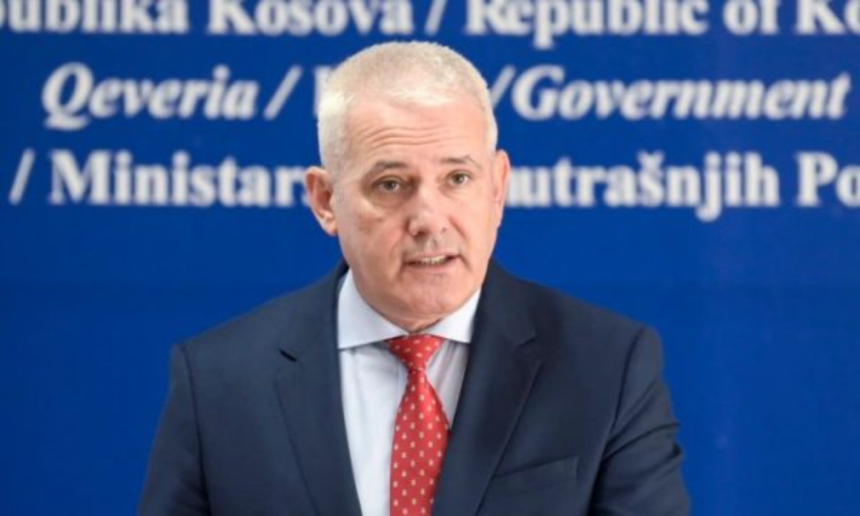Kosovo’s Ministry of Internal Affairs is facing new challenges in its ongoing fight against terrorism, particularly in combating the growing threat of right-wing extremism. This was highlighted during the release of a report detailing Kosovo’s efforts to prevent and counter terrorism, prepared by the Balkan Investigative Reporting Network (BIRN).
Minister of Internal Affairs, Xhelal Sveçla, emphasized that while Kosovo has long been considered a model for fighting terrorism, the country is now confronting the added threat of right-wing extremism alongside violent religious extremism.
“We have continuously faced various attacks on our institutions, officials, international staff, journalists, and citizens in the four northern municipalities of Kosovo. In addition to violent extremism and religious terrorism, we are now also dealing with right-wing extremism and ethnonationalism. As a government, we have responded promptly to these threats,” Sveçla said.
Sveçla pointed to specific incidents such as the terrorist attacks in Banjskë and the Ibar-Lepenc canal as clear examples of the rising right-wing extremism in the region. He emphasized that the Kosovo government has taken action by identifying and declaring two illegal groups—The Civil Protection and the Northern Brigade—terrorist organizations, and has used legal means to combat and monitor their activities.
“These two attacks have highlighted the need to address the development of right-wing extremism as a priority, not only in our country but also in the region and globally,” Sveçla stated.
The Minister also reaffirmed Kosovo’s commitment to counterterrorism efforts, noting that Kosovo has been part of global coalitions aimed at fighting this dangerous phenomenon. The country has been active in efforts such as the repatriation of individuals from conflict zones in Syria and their rehabilitation and reintegration into society.
Khalid Koser, Director of the Global Community Engagement and Resilience Fund, emphasized the importance of being agile in the fight against terrorism. He stressed the need to identify radicalization drivers, which are often local, and respond effectively at the local level.
“We face challenges on multiple fronts, and we must monitor and address them in an agile manner. The report highlights the need for empirical studies to identify radicalization groups and their local drivers. We need to understand what’s happening at the local level and find solutions there,” Koser said.
Kreshnik Gashi, Editor-in-Chief of Kallxo.com, warned that Kosovo has yet to achieve full deradicalization of its society. He stated that the country is highly vulnerable to right-wing extremist movements.
“The situation is not good, and a lot needs to be done in the future because there’s a significant interest in pushing our youth, our society, down the wrong path, preventing them from developing democratic values,” Gashi said. “Our country is one of the most vulnerable to right-wing extremist movements.”
Labinot Leposhtica, who presented the report’s findings, noted a gap in communication between central and local levels of government. He also highlighted that Kosovo’s institutions are still in the early stages of developing scientific-based documents for combating terrorism.
The monitoring analysis “Challenges of Terrorism Prevention Mechanisms in Kosovo” was funded by GCERF and implemented by ATRC, BIRN, CBN, and Rin’On.







